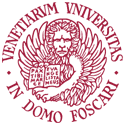Summary
Academic year 2024/2025
Where
Department of Asian and North African Studies, Palazzo Vendramin dei Carmini, Dorsoduro 3462, 30123 Venice (Italy)
For further information please contact the Department Teaching Office didattica.dsaam@unive.it.
Announcements and regulations
The teaching regulations of the study course depend on the following organisational aspects: educational goals, access methods, study plan, exams, final exam, job opportunities, etc. Throughout their university career, students must refer to the teaching regulations enforced from their matriculation.
Access to the programme
Limited admission: 875 available places
- China curriculum: 285 places;
- Korea curriculum: 100 places;
- Japan curriculum: 250 places;
- India and South-East Asia curriculum: 80 places;
- Middle East and Africa curriculum: 120 places;
- Eurasia curriculum: 40 places.
Quota reserved to foreign non-EU students residing abroad: 10 seats, of which 5 are reserved for Chinese students living in China, as part of the Marco Polo Project.
Admission test: Italian language, logical skills, English language.
A certified knowledge of English language at least at level B1 is also required.
Admission requirements
To access the course, a previous suitable background is required. Each programme requires specific knowledge, which the student should have before enrolling the university in order to attend the course successfully. This knowledge may be verified before enrolling.
If the result of the test is negative, the student can enroll, but they receive a supplementary required exam (OFA), which means that the student must fill any gaps in their background through specific activities organized by the University.
More information on OFA for this programme is available on the webpage dedicated to the admission tests.
Admission with international qualification
Applicants with international qualification must have obtained a secondary school diploma after having completed at least 12 years of schooling. The preliminary evaluation of the qualification is mandatory. Procedures and deadlines are available on the dedicated online platform.
Further details in the webpage dedicated to Degree-seeking students.
Course overview
The Bachelor’s Degree in “Language, Culture and Society of Asia and Mediterranean Africa” (LICSAAM) provides an educational programme that’s designed to develop language skills and ensure solid knowledge of the cultural heritage (religious, historical, political, literary and artistic) of the countries of Asia and Mediterranean Africa, through various curricula on different geographical areas.
The course offers six curricula, each of which involves the study of different languages.
East Asia curricula, divided into:
- China
- Korea
- Japan
Each of the three curricula includes a three-year Chinese, Korean or Japanese language course; a second language course (one year) focusing on Ainu, Arabic, Armenian, Cantonese, Chinese, Korean, Hebrew, Japanese, Hindi, Mongolian, Neo-Greek, Persian, Sanskrit, Thai, Tibetan, Turkish, Urdu or Vietnamese.
Some second-language courses include classes specifically dedicated to students who are going to study the language for a single year; other second-language courses involve first-year classes of courses offered to students who are studying the language for the entire three-year period. - India and South-East Asia Curriculum:
Two equal language courses for three years, choosing from Hindi, Persian, Sanskrit, Thai, Urdu, Vietnamese or Chinese (which lasts two years, but grants18-CFU per year). They will also be able to study introductory courses to the Pali and Tibetan languages. - Middle East and Africa Curriculum:
Arabic as a first language (three years focusing on literary Arabic and two compulsory years focusing on a dialect variant).
Second language (one year): Armenian, Hebrew, Persian, Turkish or Urdu. Depending on the specialisation, students may study the same languages for two or three years. They may also attend introductory courses on Syriac, Coptic, Ethiopic and Swahili. - Eurasia Curriculum:
First language to be chosen from Armenian, Hebrew, Neo-Greek, Persian, Russian or Turkish. Second language (two years) to be chosen from Arabic, Armenian, Hebrew, Neo-Greek, Persian, Russian or Turkish. students may also attend introductory courses on Azerbaijani, Coptic, Mongolian and Syriac language.
In addition to enabling students to become proficient in one or more languages and develop critical knowledge of the culture (visual arts, literature, religion, history, society) of the geographical areas of interest, some curricula of the Bachelor’s Degree in Language, Culture and Society of Asia and Mediterranean Africa also provide the opportunity to acquire basic notions of economics, law and geopolitics of the analysed countries; this knowledge completes the students' training, while also preparing them for further specialisation (first-level specialisation programmes, Master's degrees) or the job market.
Each student will also need to obtain level B2 in English to earn the title.
Curricula
- China
- Korea
- Japan
- India and South-East Asia
- Middle East and Africa
- Eurasia
Double and joint Degrees
Ca' Foscari University of Venice offers international educational programmes designed in collaboration with one or more partner universities, entailing the attendance of part of the study path abroad. At the conclusion of these programmes, selected students obtain a Double Degree (a diploma from Ca' Foscari and one issued by the partner university) or a Joint Degree (single degree jointly awarded by the member universities of the consortium delivering the programme), depending on the provisions of the agreements with the partner universities and the different national regulations.
Double and Joint Degrees available:
- Double Degree with B.A. in Chinese Language with Capital Normal University in Beijing, People's Republic of China
Access: Applications call - Double Degree with Kyungpook National University Daegu, South Korea
Access: Applications call
Examination assessment and graduation
The educational activities include classroom teaching, workshops and internships, in order to acquire wide-ranging skills that can be readily transferable into the world of work.
Knowledge acquired by students will be assessed through written and oral exams during the entire university career.
The degree exam consists in preparing a paper/thesis, evaluated according to methods similar to those of written exams but not in the presence of the student. The supervisor may require an oral discussion of the paper/thesis, in case they consider it to be necessary.
Access to further studies
Professional Master’s Programmes (1st level) and Master's Degree Programmes
Occupational profiles
Bachelor’s Degree graduates will be able to work in the intercultural communication field and interest themselves professionally into various sectors, both public and private, including cultural and museum bodies, national and communal public institutions, and international organizations.
They will also be able to write and translate texts with cultural relevance and with linguistic assistance at companies and other entities.
Finally, they will be able to develop professions linked to the organization and promotion of cultural and artistic events (exhibitions, expositions, festivals...) and work for businesses and other companies interesting in the Asian and Mediterranean market.

